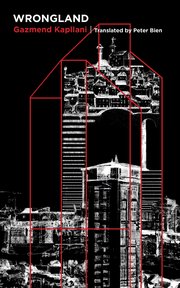It’s been 27 years since Karl left his native city of Ters, Albania, for a better life in Greece and, ultimately, America. The death of his father has brought him back home, however, and he finds a city just as riddled with contradictions as it was when he left. Ters is a city in which Roman, Byzantine, Ottoman, and Soviet pasts mingle, a city “in which everything—religions, people’s names, streets, animals, inanimate objects—existed in double or triple versions.” There he finds his brother, Frederik, the son who remained in Albania to uphold the communist ideals of their father—a man so committed to the revolution that he named his sons after Marx and Engels. Karl has long resented his father’s dedication to what he sees as a failed ideology and is surprised to learn that the old man had become an observant Muslim before he died. Karl’s trip home reopens memories stretching back to his mother’s mysterious suicide decades before. As he and Frederik butt heads over matters personal and political, a portrait emerges not only of a fractured family, but also of a fractured city and of an exile who has lived most of his life (in the words of his father) “speaking other people’s languages.” Kapllani’s prose, as translated by Bien, is not always smooth, but the images and ideas are almost always striking. “A writer’s mind often resembles a cemetery,” observes the narrator. “Most of the stories and characters fashioned by such a mind usually return like midnight shadows to the mysterious darkness of their source.” The narrative leaps around in time, covering Karl’s years in Greece and America before returning to Ters and the aftermath of his father’s death. Through Karl’s experiences, Kapllani excavates the complex and often paradoxical relationship a person has with the homeland from which they have been separated, whether through immigration, war, regime change, or the simple passage of time.
WRONGLAND

